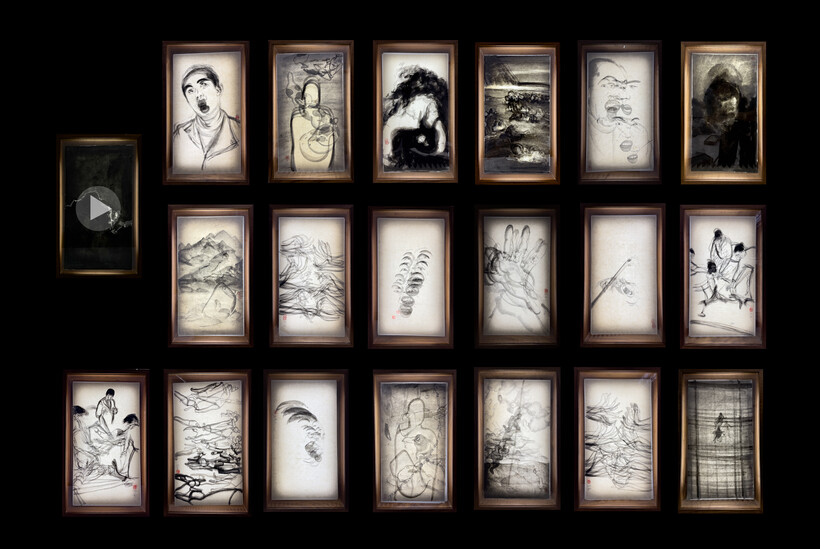Along the coast of Southeast China, there is a kind of boat dwellers called ‘DAN MIN’, who have been living on the sea with their boats as their home for generations. Their existence is like a piece of duckweed, drifting on the sea all year round. There is no name and race, and few people notice them.
The ink animation ‘The Earthly Men’ takes ‘DAN MIN’ as its inspiration. They have been drifting on the water for a long time, and as a marginalized group, their life not only reflects the social exclusion in history, but also reveals the individual’s inner sense of drifting and loneliness. In the work, The Earthly Men becomes the symbol of the ‘DAN MIN’ not only presenting their double drift in reality and psychology, but also trying to form a dialogue with the new social marginal group of urban strangers in the city nowadays.
Detail pictures:


























